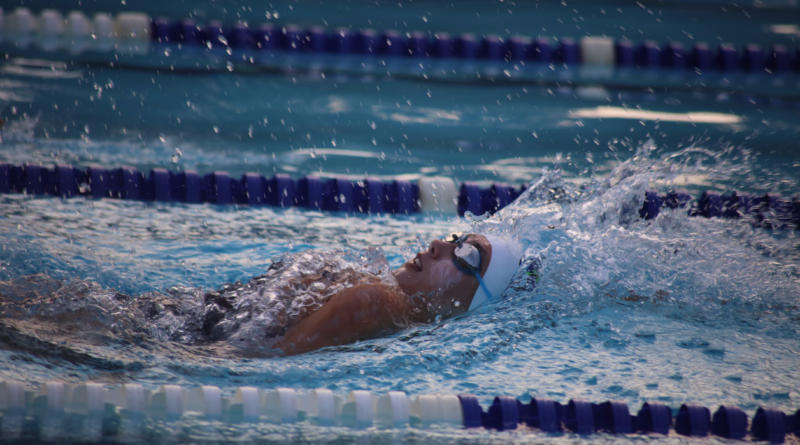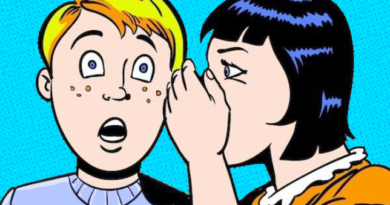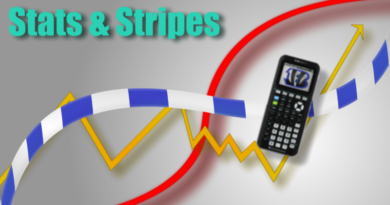Being an Athlete with Vocal Cord Dysfunction
“i’ve already swam twice oh my god i’m so rucking tired and can barely breathe jesus christ…but i just moved to the locker room bc the air quality is really bad at this pool and i can’t ducking breathe my throat hurts so bad it’s like when you have strep that’s how it feels afterwards bc of my vocal cord dysfunction”
That is a panic text I sent to my boyfriend this past weekend, letter for letter. For around over the past year and a half, I’ve suffered with vocal cord dysfunction, or VCD. When I exercise, instead of my vocal cords opening and allowing my throat to let more air in and out, they close. I make a ton of noise, previously self-described as “a dying duck,” and it is nearly impossible for me to breathe in or out. After an episode, once I’m finally able to recover, I can lose my voice for an unspecified amount of time and my throat hurts like crazy.
I started to notice my difficulty breathing around late Sept. 2020. Swimmers were heavily under COVID restrictions: we were allowed four people per lane, two people on each side of the pool, and we had to try our best to social distance while being in the water. At this point we were still practicing outdoors, even in the cooler weather, when I suddenly couldn’t finish our sets. I powered through it, taking breaks when I needed to for a couple of months, until we moved back indoors. Once we got to that point, I had to deal with bad air quality on top of my breathing problems.
After my practices were being consistently disrupted by my breathing problems, we decided to visit the asthma and allergists. Such is the beginning of many, many doctor’s appointments. They weren’t really sure what was going on at all, but I was given symbicort for “asthma” and a stomach acid-reducing pill. I tried combinations of taking one, taking the other, and taking both—not much happened at all when I took one of the medications, but when I took both of them for whatever reason it was harder to breathe.
Considering that what I was given wasn’t working at all, we decided to go back to the allergists. I got tested to see if I was allergic to anything, possibly one of the chemicals in the pool, but (thankfully?) I wasn’t. I got temporarily diagnosed with exercise-induced asthma, even though the doctor wasn’t really confident with that diagnosis. I was given a ton of albuterol, regular emergency inhalers, and a spacer to use before practices and during any episodes.
This also didn’t help. The inhalers and spacers were a bit useful for calming down from any episodes; but my time in practice was getting to the point where I would get in the water, swim for about 20 minutes, have an episode, get out, leave. I decided it would be best for me to take a break from swimming, give my body some time to heal so we could figure out what was going on and see what we could do to solve it. This was around Dec. 2020.
We scheduled two appointments in the beginning of 2021. One for a gastrointestinal (stomach related) doctor, in case my breathing problems still were related to any acid reflux, and one for a pulmonologist (respiratory specialist). Still in the heat of quarantine, it took anywhere from one to two months to get these appointments, so my break stretched longer than anticipated.
The gastrointestinal doctor’s visit was not very eventful. My parents really didn’t suspect that I was having any acid reflux problems, and the only way to check was through a really invasive procedure that I likely would not enjoy. At all.
A month later, Feb. 2021, was the pulmonologist appointment. In the intake appointment, not much happened, but the doctor was almost certain from my descriptions that I had VCD. I came in about a week later for a “treadmill test,” which consisted of running on a treadmill for about 10 minutes while they monitor my oxygen levels, and then doing a lot of breathing tests. During my break from swimming, I had tried running once or twice just to see if I could get any exercise in, but the VCD was still present. As soon as I started making a ton of noise, the doctor immediately diagnosed me with VCD. In his words, I am a “textbook case” of VCD.
Now, this being my first time hearing about it, I was told a few things: VCD is common in girls (biologically, that stands true for me), smart kids (what a compliment), and he explained what I said at the beginning; my vocal cords worked against me whenever I exercised. I was told to stop using the albuterol, because I definitely didn’t have asthma, and my doctor referred me to a speech therapist that has a specialty in helping athletes with VCD.
Getting this next appointment also took about a month. In March 2021, I had one virtual intake appointment with the speech therapist, and about a week later I went to her local recreational center to practice breathing techniques and exercises in the water. I had to learn how to breathe differently while swimming, which took up a significant amount of concentration, considering I’ve been swimming since I was about three years old. Essentially, I had to breathe with my diaphragm instead of my chest, reducing the strain on my chest area and opening up my throat. A little complicated, but I was able to mostly figure it out.
A week after this appointment, I went back to practice. I swam with an adjusted schedule, not completing full practices and using equipment to help me with harder sets. The first month and a half back in the water was dedicated to getting used to the adjusted breathing; the next two months dedicated to actually being able to complete full practices. Once I got to that point, I was finally able to work on training and improving again.
This puts us at late May, early June 2021. Summer swim season was starting again, and we were beginning to practice outdoors again. Without needing to handle poor air quality on top of the breathing problems, I was really able to take off again. I was completing full practices, competing at (mostly) the same level as I used to, and I was getting faster again, if only a little. Because everything was going so well, I didn’t even have to focus on my breathing techniques in practice.
And then the season ended, and we went back indoors again.
This is definitely partially my fault for not continuing my exercises and technique during the summer, even when I didn’t need to, but I digress. My practice performance was falling again; I was getting out early, although it wasn’t quite as bad as it was in the fall of 2020. I was able to kind of stay in the water when the school year started, for about a month and a half, until it got to the point where I was taking longer to commute to and from practice than the amount of time I was in the water. I figured it was time for another break. This puts us at Oct. 2021.
Not only was I having breathing problems this fall, but there were…a lot of other things going on in my life. I didn’t have the mental or physical energy to continue to put myself through these rough practices for a while, so I stopped for a bit. We decided to schedule another appointment with the pulmonologist, because I was getting some bad chest pains: something that hadn’t happened in the past. Similarly to the beginning of the year, we weren’t able to get any appointments immediately, so I had a quick telehealth call with my primary doctor, who pretty much said, “Just wait to see what the pulmonologist has to say.”
That appointment with the pulmonologist was also…not that helpful. I did get an x-ray done to make sure the chest pains weren’t anything serious, but he told me they were probably caused by stress and excessively rough breathing (from the VCD). I was referred back to the speech therapist again, which, shocker, took about a month to schedule.
We’re around Nov. 2021. I met with the speech therapist again, the same way as last time: a telehealth intake and a test at her recreational center. I was given a diaphragm trainer to strengthen it and hopefully help my breathing more. We also made adjustments to my breathing techniques in the water again. I was also shown a way to massage my throat when it gets really tight, in case I can’t calm down enough to purely focus on my breathing during an episode.
I was able to return to practice, again. But I decided to take this integration a lot slower than my last one. I went to incomplete practices, only a few times a week, and I increased my practice-load very slowly. I’m also holding back on going to any club meets until Jan. 2022, if not later. This seems to be working so far—I haven’t technically had an episode since Oct. 2021. It’s been very difficult to breathe, sure, but no official episode. I’m still working on going to longer practices more frequently each week; I’m not sure when I’ll be completely back to my normal practice schedule.
Talking in a present and future tense means, yes, I have finally caught up to now. This past weekend I went to my first high school meet, hence why I had troubles breathing again. It has been beyond difficult to live with and work through. The mental, physical, and emotional strain VCD has had on my health is ridiculous. I’m sure some of you readers are exhausted just listening to everything I had to deal with. Even just this weekend, dealing with the aftermath of a strained throat, I had to take a lot of pain medicine to be able to communicate without anything hurting too much.
I especially struggled with deciding what to do with my swimming career. To say I’ve had bumps along the road is a complete and utter understatement; I’ve had to take breaks for four consecutive years, all for a variety of reasons. 2018-I had tendonitis in both of my ankles and sciatica in my back. 2019-Mental health issues. 2020-COVID and VCD. 2021-VCD twice. It’s incredibly frustrating to know how talented I was at 12 years old, just to know that I am only just as fast, if not slower now at 16. My decision to skip junior year also means that I’ll be doing college swimming next year, and eventually will begin phasing out swimming from being the most important thing in my life. I was very close to deciding to begin that phase out early.
More often than not, when I had to get out of practice early, I would walk back to my car like it was a walk of shame. I was tired. Tired of having to go to practice, knowing exactly how much I’ll hurt, tired of not progressing, tired of not breathing. Tired of being disappointed every time I got out of the water and left early. I remember walking to my car, my breathing still very unstable, getting into the car, and crying. Crying, panicking, just so frustrated and tired.
It was arguably worse when I had to control my frustration in the water. If I wanted to be able to breathe, I couldn’t cry, couldn’t panic, couldn’t overreact to the difficulty I had breathing. Compartmentalizing those emotions to deal with them later, because I couldn’t safely deal with them while experiencing them, was so horrible for my mental and emotional health. It led to a bad habit of just not feeling my emotions when I should, and a lot of built-up stress.
There was also a lot of guilt involved throughout all of this. I knew I was able to perform well, even if just to the degree I was able to this summer, but I still struggled with staying in the water for the entirety of the practice. Or even once I recovered from an episode, I would gaslight myself into thinking that I could’ve just pushed through the episode and continued swimming, even though I physically would not have been able to do that.
Clearly, I am still dealing with VCD to this day. My practice time is still increasing, and maybe I’ll be able to participate in a club meet soon. At the very least, I am incredibly grateful to my parents and my coach for supporting me through all of this, and just prioritizing my health even when I wouldn’t. My friends have also been extremely supportive—cheering me on whenever I come to practice and telling me good job when I leave. I don’t think I’ll be able to get back to exactly the level where I was when I was younger, but I’ll continue to try my best to get as close as possible. As this experience has shown, I am nothing if not stubborn.



